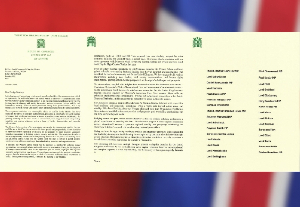Business News of Monday, 20 May 2024
Source: Stanbic Bank
Savings as a holistic approach to financial well-being
For many people, discussions about savings often revolve around stashing away money for future expenses or unforeseen emergencies. However, a deeper understanding reveals that savings extend beyond merely setting aside funds.
It includes what I call delayed consumption or delayed gratification. Delayed consumption or gratification is when you choose to deliberately postpone a purchase, an expense, or immediate pleasure for a later date, usually with a much bigger and long-term goal in mind.
For example, your budget suggests that you can spend GHS 50 on food each workday, and if you choose to spend GHS 30, you have effectively “saved” GHS 20. That is the difference between what you could spend and what you chose to spend. This is different from stashing money away, which we commonly term as savings. A true savings culture is about a mindful approach to your finances, one that fosters long-term security and empowers you to achieve your goals.
However, there is a need to find a balance between immediate spending and postponing the purchase, especially in an inflationary environment. It is a skill you need to master to achieve your long-term goals. In this article, we will explore how cultivating a savings culture is a holistic approach toward financial well-being.
Pay Yourself First
Many people often say what they earn is never enough for them. As true as this may be, I have also realized that for most people, the first thing we do when we get money is our expenditure instead of our savings. We must understand that the foundation of building a strong savings culture lies in prioritizing your financial transactions.
Ordinarily, we are taught to allocate a fixed percentage of our income to savings. While this approach is good, it overlooks the individuality of financial circumstances. Rather than adhering to a fixed percentage, prioritize consistency and discipline in setting aside a portion of your income towards savings before expenses.
This not only encourages a habit of saving but also instills a sense of financial security and empowerment.
Avoid Lifestyle Inflation
As income increases, so do aspirations and expenditures. Yet, unchecked lifestyle inflation can erode potential savings. Recognizing the subtle shifts in spending patterns and consciously curbing unnecessary expenses are important in preserving financial resources. Be practical in maintaining a balance between enjoying the present and preparing for the future. It is possible to navigate lifestyle changes without compromising long-term financial goals.
Downsize Where Necessary
In a consumer-driven society, you need to distinguish between what your needs are and what your wants are to help you allocate finances accordingly. When you are able to do this, you can downsize where necessary. Downsizing presents an opportunity to reassess priorities and optimize resource allocation.
Whether it is downsizing housing, transportation, or leisure activities, embracing a minimalist approach allows for greater financial flexibility and resilience. By prioritizing value over volume, you can redirect savings towards meaningful endeavors.
Track Your Expenses
A well-defined budget serves as a roadmap for financial decision-making, differentiating between essential and discretionary expenses. Categorizing expenditures enables you to allocate resources judiciously, ensuring that savings remain a non-negotiable component.
Furthermore, diligent expense tracking shows spending patterns and facilitates informed adjustments to align with your savings objectives. It is not just about budgeting but also about actively monitoring and improving expenses to maximize savings potential.
Have a Mindset of Financial Wellness
Savings alone cannot guarantee financial prosperity. It necessitates a holistic approach encompassing prudent investment, debt management, and risk mitigation. Cultivating a mindset of financial wellness involves continuous learning, adaptability, and resilience in navigating economic uncertainties.
By advancing financial literacy and seeking professional guidance when needed, you can empower yourself to make informed financial decisions and secure your long-term well-being.
Developing a savings culture goes beyond the mere act of setting aside money. It requires a shift towards intentional living, where financial decisions are guided by foresight, discipline, and purpose.
By embracing a holistic approach to financial management, individuals can pave the way toward a more secure and prosperous future. Remember, the journey towards financial well-being begins with a single step – prioritize yourself, embrace mindful spending, and cultivate a mindset of abundance.











